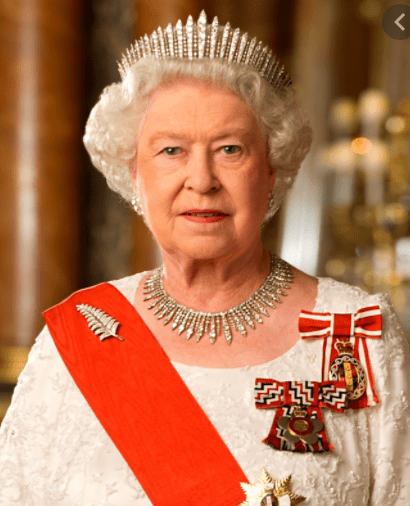Inherited wealth and land should be public property
Her Majesty the Queen, Elizabeth II, is so fond of her loyal subjects that she is determined to keep them in the dark about how much money she really has. Likewise, her heir, His Royal Highness Prince Charles, so loves the British public that he also hides from them the fact that he is immensely rich and that he bullies politicians, elected by that same public, into propping up his wealth.
It was recently revealed in the Guardian – you won’t find it anywhere in the rest of the Tory Press or on the BBC – that the Queen has actively lobbied to hide what it describes as her “private” wealth. Leaving aside the fact that none of £350m she owns (according to the Times Rich list) is anything other than the fruit of plunder and theft by her royal forebears, the Guardian reveals an almost desperate drive to keep her wealth hidden. A series of unearthed government memos reveal that the Queen’s private lawyers have over the years put pressure on politicians to change legislation to prevent her “embarrassing” wealth being known to the public.
The Queen uses an arcane and largely hidden power known as ‘Queen’s consent’ (not to be confused with ‘royal assent’ which is a legal formality to enact legislation) to examine any proposed legislation to see if it affects her personal interests. This is not just a jolly relic and part of the ‘pageantry’ we show off for tourists, but a very concrete interference in democratic processes.
Queen’s lawyers demanded – and got – exemption
In 1973, for example, the Guardian reveals that when the Tory government of Edward Heath was changing company law to make shareholdings more transparent, the Queen’s lawyers demanded exemption for her. According to the Guardian, a civil servant noted at the time that they justified the demands “not only because of the risks of inadvertent or indiscreet leaking to other people, but more basically because disclosure to any person would be embarrassing.”
In the end, the Heath government did indeed introduce a new clause into the bill, exempting the disclosure of shareholdings of heads of state, governments and central monetary authorities, among others. Despite the wording, it was clearly a measure that originated solely from a need to cover up UK royal wealth.
What was worse that it was a Labour government, under Harold Wilson, which effectively included the same exemption in its own legislation, although this time with the monarch’s shareholding hidden using a different device, one linked to the Bank of England.

Who knew that the Queen owns the seabed?
In fact, the Queens’ wealth is still growing day by day. Not many people know – again, it will never be revealed by the BBC or in the Sun or the Mail – that Her Majesty even owns the seabed off the coast of the UK, and she stands to make millions in royalties from wind farms!
An article in the Financial Times this week (February 9), points out that the auction for rights to build new wind farms “is run by the Crown Estate, which manages the seabeds around England, Wales and Northern Ireland on behalf of the UK monarch.” The successful bidders, including big oil companies like Shell, will have to pay ‘option fees’ to the Crown Estate over the next ten years, the total being auctioned amounting to nearly £9bn.
“A quarter of Crown Estate’s profits”, the Financial Times reveals, “return to the royal household as part of its ‘sovereign grant’, helping to fund the Queen’s official duties and maintenance of royal palaces, with the remainder going to the Treasury.” So a quarter of the royalties from offshore wind-farms goes precisely where it isn’t needed, to enrich the already very rich.
A few days after the story in the Guardian about the Queen, there was also the revelation that Prince Charles operates in much the same way, vetting any government legislation to test whether it threatens his wealth. Charles has long exercised his ‘right’ to vet any legislation, but the particular angle the Guardian looked at was his desire to prevent the tenants on his Duchy of Cornwall estates from having the legal right to buy the freehold on their properties.
“The exemptions”, the Guardian notes, “have left residents living in homes that have diminishing or no financial value. The residents say they cannot borrow against their homes to pay, for example, for social care fees for themselves and loved ones.” As predicted, Charles got his exemption written into legislation.
A duchy from the fourteenth century
It is worth making the point here that Prince Charles has not earned a penny of his huge wealth. His net worth, estimated at anything from £85 million to £350 million, stems from the medieval estate known as the Duchy of Cornwall, which has been passed down since the fourteenth century. It no more ‘belongs’ to him, than it ‘belongs’ to anyone else in Cornwall, or in Britain for that matter.
Charles might be portrayed in the media as a somewhat eccentric but loveable and harmless old buffer. But in fact, he is a greedy and grasping landowner, with an utterly reactionary outlook on the ‘peasantry’ and who uses his inherited ‘feudal’ rights to enrich himself, whatever the cost to his tenants.
Looking through the Times Rich List for 2020, among the 1000 wealthiest people in Britain, there are dozens like Charles. There are eleven dukes, eight earls, three marquesses, twenty lords, two baronesses, a prince and two princesses, with a combined wealth running into the hundreds of billions of pounds. For some strange reason, Prince Charles himself doesn’t make the list. Who knows, perhaps he has an arrangement with The Times as well?
At any rate, the wealth associated with these inherited titles is in no sense ‘earned’ or merited. It is overwhelmingly based on medieval theft and plunder, going back as far as the Wars of the Roses. It has been handed down, generation upon generation, and is reservoir of wealth that in the twenty-first century ought to belong to the public, not to those privileged and pampered individuals who happen to be born to it.

UK population mired in poverty
At a time when a quarter of the UK population is mired in poverty or on the edge of it, when financial security is more elusive for tens of millions of families than it has ever been; at a time when food banks are breaking all records for attendance, the very existence of this huge mountain of inherited wealth is obscene.
What is worse is that Labour MPs and Labour Prime Ministers have collaborated with the process of hiding the inherited wealth and privilege of a tiny handful of the population and keeping it from the majority of the population. It shows how so many Labour MPs – all on the right of the party – are as much a part of the establishment as Tory MPs and Lords.
More important than the obscene inherited wealth of the monarchy – although that is bad enough – is the fact that the Crown exercises great political power, power that the labour movement would be as well not to ignore.
All of the machinery of the state: the police, the armed forces, the judiciary, the civil service, are legally and technically subject to the Crown, not to the elected parliament. It is not just a historical anachronism, a ‘quirky’ throwback of no great significance. It is an arrangement that has been refined over the centuries and is there to be an obstacle to any radical government aiming to trim the privileges, wealth and power of the British ruling elite.
Labour Prime Minister ousted
In 1975, the Australian Labour Prime Minister, Gough Whitlam, was dismissed from office by the Queen’s representative, Sir John Kerr, who had been advised by two High Court judges and who believed himself to have had the green light from the Queen. Following a contrived constitutional crisis, and in direct contradiction to the result of the general election from a year earlier, Kerr then proceeded to invite the Tory opposition leader, Malcolm Fraser (with whom he had been in secret contact for some time), to form a government.

The ousting of Whitlam reflects the real reserve power that is inherent in the monarchy, and it is a warming to any future Labour government. Labour must be clear that a so-called ‘constitutional monarchy’ has no place in a modern democracy. The royal prerogative will be used in the future to the fullest possible extent to thwart the policies of any radical Labour government, no matter how popular or how big its parliamentary majority.
The nearest the Labour Party has come recently to addressing this issue is the commitment in the 2019 election manifesto to abolish the hereditary element of the House of Lords. “We will act immediately”, it says, “to end the hereditary principle in the House of Lords, and work to abolish the House of Lords in favour of Labour’s preferred option of an elected Senate of the Nations and Regions.”
In fact, there is no reason for any second chamber; in every other country where there is one – even if elected– it is based on a compromised version of ‘democracy’ and is only there to act as a barrier to the legislation of a ‘lower’, more democratic, chamber. Labour should be in favour of the abolition of the House of Lords, full stop.
But socialists need to push in the Labour Party for measures beyond the abolition of the Lords. The vast inherited wealth, land, art treasures and shareholdings of royalty ought to be turned over to be publicly-owned property. There is no reason why the gifts, patronage, thefts and pillage stemming from the Middle Ages should have any recognition whatsoever in modern times, or that the ownership of wealth passed down from Medieval times should be acknowledged today.
If the scale of royal wealth were known; if the powers of royalty were not shrouded in great secrecy; if their tax and legislative exemptions were broadcast, then royalty would not last a week in this country. We do not have a royal family sitting on a monstrous pile of money so that tourists can take photographs. They are part of an undeserving and privileged ruling establishment and it should be the objective of the Labour Party in office to remove that establishment.
*No more secrecy around royal privileges and exemptions
*Full disclosure of royal land, art treasures, shareholding and property interests
*Complete abolition of royal titles and privileges and the primacy of the Crown
*Bring all inherited land, property and wealth into public ownership.
*For a socialist government, introducing policies for the Many, not for a tiny number of privileged Few.



